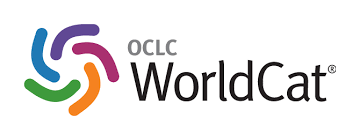Korupsi Ditinjau dari Kitab Amsal
DOI:
https://doi.org/10.69668/sejati.v1i2.59Keywords:
corruption, Book of Proverbs, biblical perspectiveAbstract
This study explores the perspective of the Book of Proverbs on corruption, focusing on how its teachings can be applied to combat corruption in the modern context. The moral and spiritual dimensions of corruption are often overlooked in modern legal approaches, whereas the Book of Proverbs provides profound insights into corruption as a manifestation of the human heart's depravity. This study employs a topical method, analyzing ten selected verses from the Book of Proverbs in their original Hebrew and modern translations. The findings reveal that the Book of Proverbs consistently opposes corrupt practices such as fraud, bribery, and oppression, offering solutions grounded in moral and spiritual transformation through Christian values. By establishing integrity, justice, and faithfulness to God as moral foundations, the teachings of Proverbs provide relevant guidance for shaping individual behavior and equitable leadership in modern society. This study concludes that the teachings of the Book of Proverbs offer a Christian-based framework for building a corruption-free society and upholding justice.
References
Berita Resmi Statistik Indeks Perilaku Anti Korupsi (IPAK) 2024 No. 53/07/Th. XXVII, 15 Juli 2024. (2024). https://www.bps.go.id/id/pressrelease/2024/07/15/2374/indeks-perilaku-anti-korupsi--ipak--indonesia-2024--sebesar-3-85--menurun-dibandingkan-ipak-2023-.html
Blommendaal, J. (2005). Pengantar Kepada Perjanjian Lama. BPK Gunung Mulia.
Boyd, F. M. (1999). Kitab Nabi-Nabi Kecil. Gandum Mas.
Brown 1849-1916., F., Robinson 1794-1863., E., Driver 1846-1914., S. R., Briggs 1841-1913., C. A., & Gesenius 1786-1842., W. (1906). A Hebrew and English lexicon of the Old Testament : with an appendix containing the biblical Aramaic. Clarendon Press. https://archive.org/details/hebrewenglishlex00browuoft
Chambers, O., & Verploegh, H. (1990). The Oswald Chambers Devotional Reader: 52 Weekly Themes. Oliver Nelson. https://books.google.co.id/books?id=SK_6mZ6QEWsC
Citranu. (2020). Tindak Pidana Korupsi Perspektif Filsafat Iman Kristen. Satya Widya : Jurnal Studi Agama, 3(1), 53–73.
Muldoon, D. (2013). Wealth and Poverty in the book of Proverbs. https://www.pceasydneywest.org.au/images/Poverty.pdf
Dharmawan, N. A. S. (2018). ETIKA, AGAMA, DAN CINTA SEBAGAI MODAL DASAR AKUNTAN DALAM MEMBERANTAS KORUPSI. In Jurnal Ilmiah Akuntansi • (Vol. 3, Issue 1). http://riset.ti.or.id/
Elia, N. B. (2023). Mengkonstruksi Etika Kristiani tentang Korupsi dan Sikap Anti-Korupsi melalui Lensa Perjanjian Lama dan Perjanjian Baru. Jurnal Abdiel: Khazanah Pemikiran Teologi, Pendidikan Agama Kristen Dan Musik Gereja, 7(2), 104–118. https://doi.org/10.37368/ja.v7i2.517
Hetharia, H. H. (2012). Korupsi dalam Perspektif Etika Kristen. Jurnal Tifa Teologi, 2(2).
Kambodji, O., & Widjaja, P. S. (2021). Tinjauan Teologis-Etis Terhadap Banalitas Kejahatan Korupsi. DUNAMIS: Jurnal Teologi Dan Pendidikan Kristiani, 6(1), 262–281. https://doi.org/10.30648/dun.v6i1.525
Kramer, A. T. (2004). Singa Telah Mengaum: Para Nabi dalam Perjanjian Lama. BPK Gunung Mulia.
Lembang, A. (2020). Karakter Kepemimpinan Kaleb Bagi Nilai Anti Korupsi Aparatur Sipil Negara. In Copyright©. Kinaa. https://www.kpk.go.id/id/berita/berita-kpk/1462-indeks-
Manafe, Y. Y. (2020). Keberdosaan Manusia Menurut Alkitab. SCRIPTA: Jurnal Teologi Dan Pelayanan Kontekstual, 8(2), 111–131. https://doi.org/10.47154/scripta.v8i2.67
Maria Handayani, D. (2019a). KORUPSI: STUDI PERBANDINGAN BERDASARKAN DUNIA TIMUR TENGAH KUNO DAN PERJANJIAN LAMA. Jurnal Teologi Kristen, 1(1).
Maria Handayani, D. (2019b). Korupsi: Studi Perbandingan Berdasarkan Dunia Timur Tengah Kuno dan Perjanjian Lama. Jurnal Teologi Kristen, 1(1).
Matthew Henry. (2013). Tafsiran Matthew Henry: Kitab Amsal. Penerbit Momentum.
Mengenal Pengertian Korupsi dan Antikorupsi. (2023, February 15). https://aclc.kpk.go.id/aksi-informasi/Eksplorasi/20220411-mengenal-pengertian-korupsi-dan-antikorupsi
Miller, S. (2016). Corruption and Anti-Corruption in Policing—Philosophical and Ethical Issues. Springer International Publishing. https://books.google.co.id/books?id=LGUBDgAAQBAJ
Nam, R. S. (2021). Bribery and the informal economy in proverbs. Biblical Interpretation, 29(1), 49–66. https://doi.org/10.1163/15685152-00284P02
Nggebu, S. (2021a). Korupsi dalam Sorotan Etika Kristen dan Implikasinya Bagi Pendidikan Anti Korupsi. Didache: Journal of Christian Education, 2(1), 20. https://doi.org/10.46445/djce.v2i1.386
Nggebu, S. (2021b). Korupsi dalam Sorotan Etika Kristen dan Implikasinya Bagi Pendidikan Anti Korupsi. Didache: Journal of Christian Education, 2(1), 20. https://doi.org/10.46445/djce.v2i1.386
Nggebu, S. (2022). Pencegahan Korupsi Menurut Iman Kristen. In Jurnal Teologi Injili (Vol. 2, Issue 1).
Pasaribu, M. M., & Boiliu, F. M. (2021). Edukasi Pendidikan Agama Kristen Antikorupsi Pada Anak Sejak Dini. Jurnal Education and Development, 9(3), 540–546.
Pattinaja, A. A., & Suhun, W. (2024). Antitesis Orang Jujur dan Orang Fasik Dalam Pembentukan Karakter Pemimpin: Studi Eksegesis Amsal 11:11. https://www.kpk.go.id/id/statistik/penindakan/tpk-berdasarkan-wilayah
Putra, A. M. (2022). Melawan Korupsi: Inspirasi dari Injil Matius 6: 11. Societas Dei: Jurnal Agama Dan Masyarakat, 9(1), 105–125. https://doi.org/10.33550/sd.v9i1.292
Rifai. (2018). Mengajarkan Sikap Anti Korupsi Sejak Dini Melalui Refleksi Keluaran 23:1-13. In Copyright© (Vol. 23, Issue 1). https://doi.org/10.30995/kur.v4i1.30
Sahardjo, H. P. (n.d.). Sikap Orang Kristen Terhadap Kekayaan.
Sin, S. K. (n.d.). PENDEKATAN TOPIKAL DALAM MENAFSIRKAN KITAB AMSAL.
Spence-Jones 1836-1917, H. D. M., Exell 1849-1910, J. S., & Deems 1852-1929., E. M. (1950). The pulpit commentary. Wm. B. Eerdmans Pub. Co.
Statistik Tindak Pidana Korupsi. (2024). https://www.kpk.go.id/id/publikasi-data/statistik/penindakan-2
Sunariyanti, S. (2020). Penerapan Etika Kristen dalam Pendidikan Anti Korupsi di Keluarga. SANCTUM DOMINE: JURNAL TEOLOGI, 7(1), 107–120.
Tandana, E. A. (2023). REFLECTION GOOD NAME AND CORRUPTION BEHAVIOR IN INDONESIA FROM PROVERBS 22:1. QUAERENS: Journal of Theology and Christianity Studies, 5(1), 18–31. https://doi.org/10.46362/quaerens.v5i1.177
Tumbol, J. B., Sukri, A., & Jaffray, S. (2022). Korupsi dari Perspektif Etika Kristen: Aspek Potensi Korupsi dan Upaya Gereja Meminimalisir Perilaku Korupsi. 2022. https://doi.org/10.56175/salvation
Uroko, F. C. (2022). A moral–theological analysis of unethical business practices in Warri through the lens of Proverbs 11:1–6. Verbum et Ecclesia, 43(1), 7. https://doi.org/10.4102/ve.v43i1.2486
Vallen Ayomi, H., & Paramma, PRT. (2021). Gereja dan Korupsi: Analisis Isi Khotbah (Content Analysis) Terkait Praktek Korupsi di Papua. Integritas : Jurnal Antikorupsi, 7(1), 197–216. https://doi.org/10.32697/integritas.v7i1.734
Yolanda, H., & Simanjuntak, F. (2021). Pandangan Etika Kristen Terhadap Hukuman Mati Bagi Para Koruptor di Indonesia. 2(2), 2722–6433. http://jurnalsttkharisma.ac.id/index.php/Kharis
Yosua Sualang, F. (2024). “Kekayaan yang Menumbuhkan Sayap”: Faktor Tindakan-Evaluasi terhadap Disorientasi Penggunaan Harta dalam Kajian Interpretatif Amsal 23:4-5. Jurnal Teologi Gracia Deo, 7(1), 1–15. https://doi.org/10.46929/graciadeo.v7i1.209



 ENCE TOOLS
ENCE TOOLS









